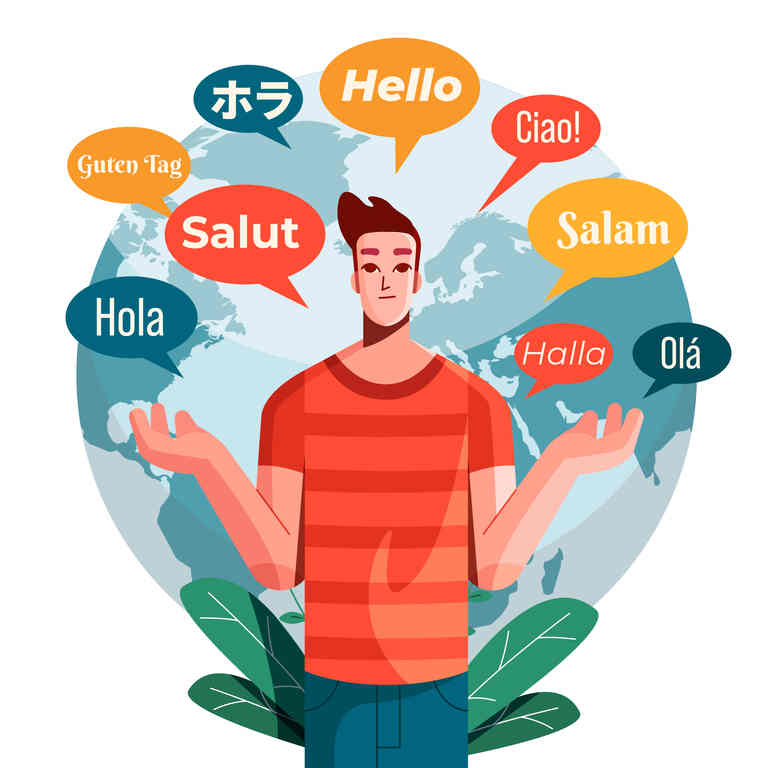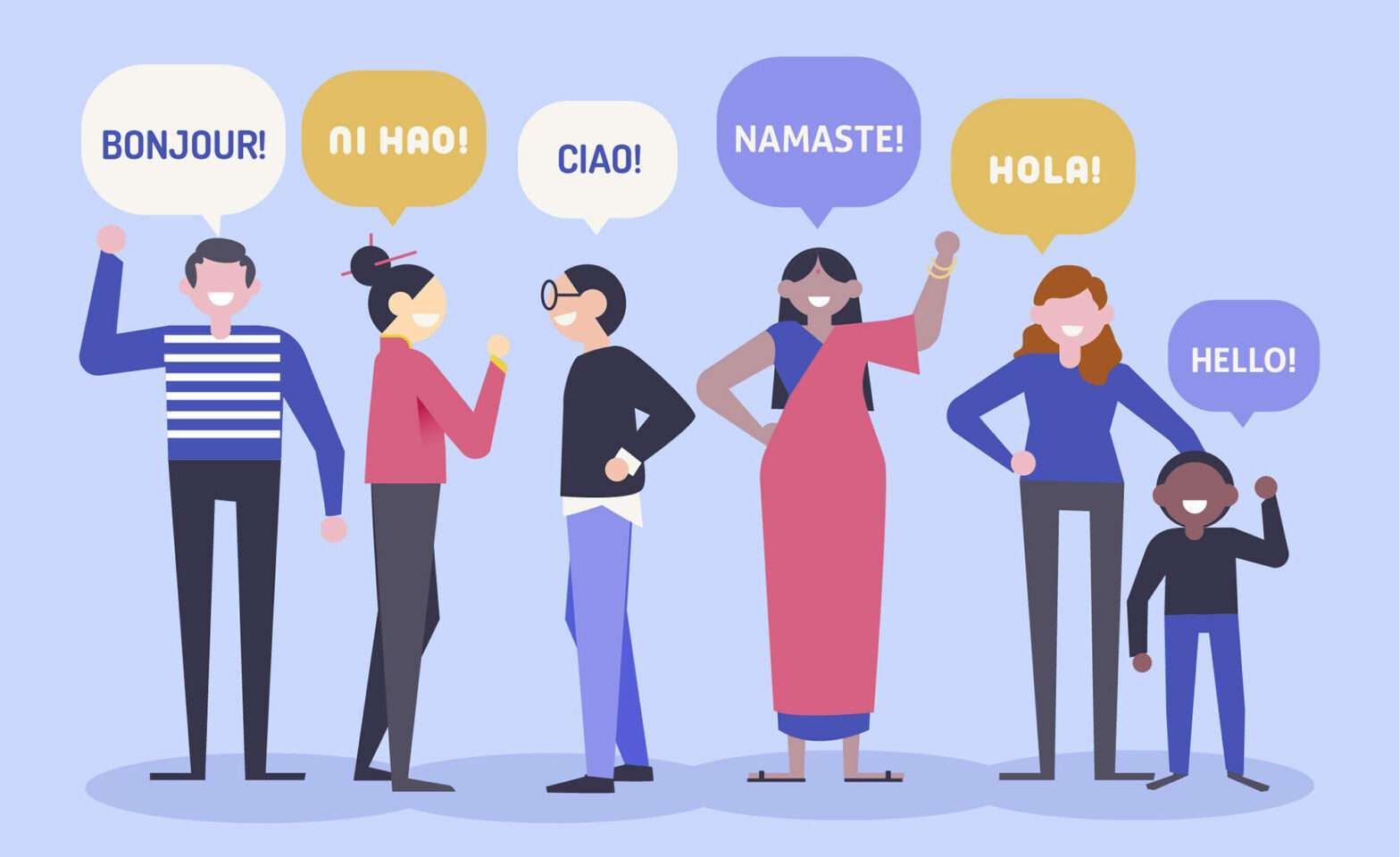What Language Do They Speak In Iceland? A Look At Icelandic Today
Have you ever wondered about the unique sounds you might hear walking through Reykjavík, or perhaps what words you would need to learn before visiting this stunning island nation? It's a question many curious travelers and language lovers often ask. Well, when it comes to the question of what language do they speak in Iceland, the answer is quite fascinating and steeped in a rich history.
The official language of Iceland is Icelandic, a tongue that is truly a piece of living history. It's spoken by nearly everyone who calls this country home, which is a remarkable fact when you think about it. For instance, out of the roughly 336,000 people living there, at least 300,000, if not more, speak Icelandic as their main way of communicating. This means you'll hear it everywhere, from busy city streets to quiet, remote villages, and that's pretty cool.
This widespread use of Icelandic, along with a near 100 percent literacy rate across the island, really highlights how important language is to the people here. It's a big part of their identity, and you can tell they take great pride in it. So, if you're ever curious about the linguistic landscape of this Nordic gem, know that Icelandic is truly at its core, and you'll find it's a language with a story to tell, actually.
- Discover The Cuttingedge Art Of Iam Ousley Aigenerated Masterpieces
- Unveiling Joran Van Der Sloots Height Exploring Insights And Surprising Revelations
- Uncover The Truth Did Jvke Play Tyler In Wednesday Surprising Revelations And Expert Insights
- Unveiling The Truth Alicia Menendezs Marital Status Revealed
- Discover The Enigmatic World Of Jason Butler Harners Wife
Table of Contents
- The Heart of Icelandic Communication
- A Language Rooted in History
- English in Iceland: What to Expect
- A Living Language, Yet Unchanged
- Frequently Asked Questions About Icelandic
- Wrapping Things Up
The Heart of Icelandic Communication
When you consider what language do they speak in Iceland, the simple answer is Icelandic. This isn't just a casual fact; it's deeply ingrained in the country's fabric. In fact, it was officially declared the national and official language under Act No. 61/2011, which was adopted by the parliament. This legal recognition really shows how much value the nation places on its unique tongue, and that's something you don't always see in every country, is that.
The prevalence of Icelandic is quite striking. As mentioned, nearly everyone on the island uses it for their daily conversations, for their work, and for their art. This means that from the moment you step off the plane, you'll be surrounded by the sounds of Icelandic, which can be a very immersive experience. It's a language that has truly stood the test of time, and you'll find it's quite distinct, really.
This widespread usage and official status mean that all public services, education, and media operate primarily in Icelandic. For visitors, it's a chance to hear a language that has a very direct link to the past, and that's a pretty special thing. It's not just a language; it's a cultural cornerstone, and it's something that defines the Icelandic people, in a way.
- Unveiling The Intriguing Truths Behind Alex Turners Height
- Unveiling The Legacy Of Rodolfo Mrquez A Journey Into Mexican Art
- Unraveling The Intriguing Story Of Elaine Scottos Husband
- Unveiling Political Strategies With Lucy Caldwell
- Dylan Mulvaneys Transformative Journey Before And After Insights
A Language Rooted in History
The story of Icelandic is a fascinating one, very much tied to the island's long and often solitary existence. Historically, Iceland has been a very isolated place, and this isolation has played a huge part in keeping its language remarkably pure and consistent over many centuries. This linguistic homogeneity means that, for a long time, there weren't many outside influences changing how people spoke, which is quite unusual, actually.
Despite this general isolation, the island has, nevertheless, been home to several languages throughout its history. While Icelandic is the dominant force today, there were other linguistic threads woven into the country's past. This suggests a more varied linguistic heritage than one might initially expect, even with its strong homogeneity, so.
It's interesting to consider how a language can remain so true to its roots when so many others evolve rapidly. The unique conditions of Iceland, both geographical and cultural, have created a sort of linguistic time capsule. This means that what you hear spoken today has a very direct lineage to the language of the early settlers, and that's a powerful connection to the past, you know.
Echoes of Old Norse
One of the most remarkable things about Icelandic is its deep connection to Old Norse. This isn't just a casual resemblance; the language has changed very little since Iceland was first settled, which was centuries ago. It's a North Germanic language, and it's quite similar to the Old Norse that Vikings spoke when they first arrived on the island in the 12th century. This makes it a truly unique feature, especially among the other Scandinavian languages, as a matter of fact.
Think about it: someone speaking Icelandic today could, in theory, read ancient sagas written hundreds of years ago with a fairly good level of understanding. This is almost like English speakers being able to easily read Chaucer or even Beowulf without much trouble, which is simply not the case for us. This incredible preservation is a testament to the language's resilience and the cultural value placed upon it, and that's pretty amazing, really.
The close relationship to Old Norse also links Icelandic to other Nordic languages, though it stands out because of how little it has changed. While it's specifically closer to Faroese and Norwegian in its family tree, its historical preservation gives it a distinct character. This means it's a language that offers a window into the past, allowing speakers to connect directly with their ancestral tongue, and that's a profound aspect of their heritage, too.
The Role of Isolation
The geographical isolation of Iceland has been a major factor in the preservation of its language. Being an island nation, separated by vast stretches of ocean from other populated lands, meant that external linguistic influences were historically minimal. This allowed Icelandic to develop and maintain its distinct features without being heavily diluted by neighboring tongues, which is quite a rare occurrence in linguistic history, in a way.
This isolation fostered a linguistically homogeneous environment. For centuries, the people of Iceland communicated almost exclusively with each other, using their shared language. This constant internal reinforcement helped solidify the language's structure and vocabulary, ensuring it remained consistent across generations. It's almost like a natural language laboratory, where the conditions were just right for preservation, apparently.
Even though the world is much more connected today, the historical impact of this isolation continues to shape the Icelandic language. It's a living example of how geographical factors can influence cultural and linguistic development in profound ways. This unique history is a big part of why Icelandic is so special, and it's something that visitors often find very intriguing, you know.
A Bit About Other Tongues
While Icelandic is the official and national language, it's worth remembering that the island has seen other languages. For example, Gaelic was the native language for many of the early settlers, especially those who came from areas like Ireland and Scotland. This historical presence of Gaelic suggests a richer, more complex linguistic tapestry in Iceland's early days than just Old Norse, and that's a detail often overlooked, you know.
The influence of Gaelic, though perhaps subtle in the modern language, reminds us that even in historically isolated places, there can be diverse linguistic roots. It shows that the early population was not entirely uniform in its linguistic background, which is pretty interesting to think about. This early mix contributes to the full story of language use in Iceland, providing a deeper understanding of its historical roots, and how culture and communication have coexisted over time, actually.
So, while Icelandic became the dominant language, these historical whispers of other tongues add layers to the island's linguistic narrative. It’s a reminder that even the most homogeneous languages have stories of interaction and influence in their past, and that’s a pretty universal truth about human communication, I mean.
English in Iceland: What to Expect
When you consider what language do they speak in Iceland, it's true that Icelandic is the official language, but here's a helpful tip for travelers: English is widely spoken. This is a huge plus for visitors from English-speaking countries or those who use English as a common international language. You'll find that many Icelanders, especially younger generations and those working in tourism, have a very good grasp of English, which is quite convenient, honestly.
This means that while learning a few Icelandic phrases is always appreciated, you can generally get by very comfortably using English in most situations. Whether you're ordering food, asking for directions, or checking into your accommodation, you'll likely find someone who can communicate with you in English. This makes traveling around Iceland much easier for many people, and that's a big relief for a lot of visitors, I mean.
The prevalence of English also reflects Iceland's openness to the world and its strong ties to international tourism and trade. It shows a practical approach to communication, ensuring that visitors feel welcome and can navigate their way around without major language barriers. So, while you'll hear Icelandic all around you, you can rest assured that English will usually be available as a bridge, and that's a very helpful thing to know, to be honest. You can learn more about language use on our site, too.
A Living Language, Yet Unchanged
It's quite something to think about Icelandic as a language that is, in a way, frozen in time. It has remained largely unchanged since the Vikings arrived in the 12th century, which is an incredible feat for any spoken tongue. This means that the Icelandic spoken today is remarkably similar to the Old Norse of centuries past, making it a living connection to a very ancient linguistic heritage, and that's just amazing, really.
This remarkable stability is a source of great pride for Icelanders. It allows them to maintain a direct link to their historical texts and sagas without needing extensive translations or linguistic interpretations. It’s a language that has resisted the tides of change that have swept over so many other European languages, and that's a truly unique characteristic, you know.
The continuous use and careful preservation of Icelandic ensure that it remains a vibrant, active language, not just a historical relic. It's spoken in homes, schools, and businesses every day, showing that a language can be both ancient and incredibly alive at the same time. This blend of history and daily use makes Icelandic truly special, and it's a testament to the country's dedication to its heritage, in a way.
Grammar Tidbits: Four Cases
As a Nordic language, also referred to as a North Germanic language, Icelandic has some interesting grammatical features that contribute to its unique character. One notable aspect is its use of four cases. Now, for those unfamiliar with grammatical cases, they basically mean that nouns, adjectives, and pronouns change their endings depending on their role in a sentence, which can make things a bit different from languages like English, for instance.
These four cases—nominative, accusative, dative, and genitive—are a key part of Icelandic grammar. They help convey meaning and relationships between words in a sentence, and they've been a stable feature of the language for a very long time. This grammatical structure is part of what gives Icelandic its distinct sound and feel, and it's something that truly sets it apart, you know.
Understanding that Icelandic uses cases helps explain why it has remained so consistent with Old Norse. This grammatical complexity has, in a way, helped protect the language from significant simplification or external influence over the centuries. It's a feature that makes Icelandic both challenging and rewarding for those who choose to learn it, and that's a pretty neat detail about it, honestly. You can link to this page for more details about language structure.
Frequently Asked Questions About Icelandic
What is the official language in Iceland?
The official language in Iceland is Icelandic. This has been formally recognized by law, specifically under Act No. 61/2011, which was adopted by the parliament. It's the language you'll hear spoken by nearly everyone in the country, from the capital city of Reykjavík to the smallest fishing villages, and that's a pretty consistent fact, you know.
What is the main language spoken in Iceland?
The main language spoken in Iceland is Icelandic. It's a North Germanic language that has a very strong resemblance to Old Norse, the language of the early Viking settlers. This means it has changed very little since Iceland was first settled centuries ago, making it a living historical language, which is quite remarkable, really.
Is English widely spoken in Iceland?
Yes, English is widely spoken in Iceland. While Icelandic is the official language, many Icelanders, especially those involved in tourism and younger generations, speak English very well. This makes it quite easy for visitors to communicate and navigate the country without significant language barriers, which is very helpful for travelers, to be honest.
Wrapping Things Up
So, when you ask what language do they speak in Iceland, the clear answer is Icelandic, a language truly frozen in time yet vibrantly alive today. It's a North Germanic language with deep ties to Old Norse, a testament to centuries of isolation and a strong cultural identity. This unique linguistic heritage, coupled with a nearly 100 percent literacy rate, showcases a nation that values its words and history deeply. While Icelandic is everywhere, it's also reassuring to know that English is widely spoken, making the country very welcoming for visitors. It’s a blend of ancient tradition and modern practicality, and that’s a pretty special combination, actually. To learn more about the fascinating world of languages, you might find this external resource helpful: Ethnologue - Languages of Iceland.
- Uncover The Secrets Of Skip The Game Odessa A Journey Of Discovery
- Unveiling The Life And Legacy Of Nate Bossi Discoveries And Insights Within
- Jenna Lyons Height Surprising Truths And Fashion Revelations
- Unveil The Latest Sports News And Discoveries For February 4 2024
- Unveiling The Enigma Discover The Genius Behind Eric Von Haessler

7+ Ways to Overcome Barriers to Communication with Examples

Breaking Barriers: The Power of Language in Cross-Cultural

Factors Affecting Language Learning Success: Age, Native Language